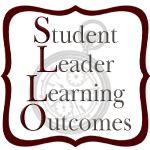There are times in our student affairs careers where our outlook on life and student learning are positive and full of hope. Then there are times like Justin mentioned earlier this month, when students just don’t get why tracking and documenting their learning is so important. But when the “ah-ha” moments do come, they come in such an awesome way it deserves a poem.
The hustle and bustle of each day can sometimes cause students to forget
How they learn, how they grow, what makes them tick
But life provides several moments of awe, where their brain wipes off the dust
And they open their minds to the world around them
With no bright lights or crowds of cheerleaders students step cautiously into the unknown
And they begin the dance of trial and error as they navigate challenges they face along their journey
And they dance and dance until it all makes sense
This is when the learning clicks
-Tracie Lowe
Monday, October 22, 2012
Tuesday, October 9, 2012
“waHeat” Thins to the Karate Kid: When Students Don’t Get It
“waHeat” Thins. An interesting comic relief between Baby Stewie and the dog Brian, from the Fox show, Family Guy for the troubles we see when two people do not see eye to eye on pronunciation.
However, it is easy to see the analogies we can come up with for our students
Many times as student affairs professionals we have close contact with students whether in 1:1 situations, general meetings, or exec team meetings. We tend to have these moments when students don’t get it. That “it” is sometimes defined as the big picture or the purpose, programming activities
I think back to my undergraduate years when I was a resident advisor and one of my duties was being the secondary advisor to my hall council. It was tough trying to run a meeting and or trying to let the Hall President know how to effectively delegate tasks and put on hall/campus programming. For me it was a lot of trial and error that gave me the experience on how to talk with the exec team to assist (coax them) to get things done. I also found myself not realizing what I was getting out of this position/collateral assignment that was given by my Hall Director. I more so saw this as busy work.
However, during this time, I would have meetings with my Hall Director giving her updates on what was going on with the Hall Council and also myself
,being the secondary advisor in conjunction with being a Resident Advisor/student. My Hall Director would continue to tell me that I should try this and that and be more intentional with tips and strategies to better impact my students and get more out this position. However, I found myself sticking to my own ideas, beliefs, and realizing that I could handle this. I began to give myself pressure not to fail. And fail we did, but winning happened as well near the end of the year.
In hindsight, I know I could’ve started off winning if some of the resources that SLLO offers now in terms of the rubrics were available to me back then. So now being someone in the field with experience and knowledge that believes that the SLLO rubrics do work, I find my old undergraduate self in these students. I can not tell you how many disagreements I have been in on where the “WaHeat Thins” commercial was a real life example of getting students to understand that their experiences and interpretations are important. However, the lesson that needs to be learned is that going your own way sometimes can set you up for a hard fail. Yet, when we use the SLLO rubrics in developing our student leaders, the student and the advisor can track their development and the see the “Ah-Ha!” moments come through loud and clear.
That “Ah-Ha” moment reminds me of the original “Karate Lessons” from Mr. Miyagi. Need a refresher, check this out.
It was interesting to see how frustrated Mr. Miyagi got when trying to teach Daniel that the most remedial tasks have a plan and purpose in the scheme of things. How many times do we lose our patience when teaching students that there is a purpose? Only if we had more obedient Daniels in real life where they didn’t get confused, or blow up and get frustrated to see what the purpose of the SLLO rubrics is. Documenting their progress; giving examples of how they completed the rubrics in SLLO is purposeful and can be eye opening. As we’ve talked about before when discussing SLLO, learning is not a sprint and students are not going to immediately get the reasoning behind doing the rubrics. But if you can help students persevere like Mr. Miyagi did with Daniel; that revelation can come at the end. And that end is when all of the activities, documenting, and or conversations you have done with your student leaders comes together in one fluid form allowing them to know Karate or in our case, know leadership and life skills.
- Justin Varghese
Subscribe to:
Posts (Atom)









